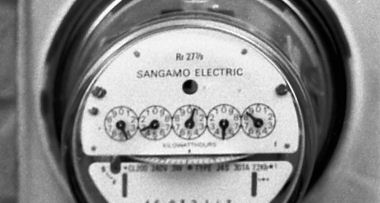Even in the best families people sometimes make bad decisions and end up in jail. It could be a DUI, drug possession, or worse. But those bad situations not only have life consequences for the person who is incarcerated but also for their family.
What effect will it have on the person who is called to post bail? Will it be financially devastating? Could you lose your house or car? In today’s post we will look at What Happens When A Family Member is Jailed? ~Tim McMahon, editor
 Imagine you’re sitting at home and the phone rings. It’s a collect call from jail. Someone you love is behind bars. You never thought it could happen to you, but it has. You want to help, that much is true, but how is helping going to affect the family budget? An arrest affects everyone in your family, not just the person who is jailed. Dealing with bail and finding a co-signer are complicated, especially if this is your first time in this situation.
Imagine you’re sitting at home and the phone rings. It’s a collect call from jail. Someone you love is behind bars. You never thought it could happen to you, but it has. You want to help, that much is true, but how is helping going to affect the family budget? An arrest affects everyone in your family, not just the person who is jailed. Dealing with bail and finding a co-signer are complicated, especially if this is your first time in this situation.
The hard truth – Getting bailed out of jail can be expensive, even if you’re working with a bail bond agency. Knowing what you’re up against, beforehand, can help you make the right decisions.
What is Bail?
Basically, bail is a temporary release from jail. The accused is required to pay the court a sum of money, in order to be released. The court will return this money if the defendant shows up for court. The money is an incentive to return to court and answer for the crime. If you can not come up with all the money yourself you must get the money from somewhere else. This could be from a “bail bondsman”.
What is a Bail Bond?
A bail bond is a contract between the co-signer, the defendant and the bail bond agency. The bail bondsmen and the co-signer are agreeing that they will be responsible for the defendant and ensure he shows up to court. The bail bond agency agrees to pay the amount of money demanded by the judge, in order to release the defendant before the court date. The family of the defendant will have to pay a non-refundable fee to the bail bond agency in order to receive this service.
The bail bond agent may have other requirements specific to the defendant’s case, in order to complete the agreement. Sites, like ExpertBail.com, can help you find a licensed bond agent in your area, if you need one.
Financial Costs Associated with Bail
Most families don’t have a lot of extra money lying around, for things like bail. A bail bond agency is the next choice that often comes to mind. While the bond agent pays the full amount of the bail to the court, he does expect that you pay a fee in return.
By law, bail bondsmen must charge the defendant and the co-signer 10% of the bond amount. If the bail amount is $5000, the bond agency would require $500 from the defendant’s family. Oftentimes, if the defendant has this money, he will ask that his family acquires it for him – either from his home or from his bank. If the defendant doesn’t have the money, the family will have to decide if it’s worth it to pay this fee.
Collateral
Sometimes a bond agency is willing to accept collateral, as a promise of payment. Collateral is anything that has a value when sold. Most often, a bond agency will accept property as a form of collateral. This ensures that the defendant shows up to court, answers to their charges and the bond agency has the bond returned to them.
Other things that may be used as collateral include:
- Vehicles
- Jewelry
- Expensive art pieces
- And, deeds
If the defendant does not attend his court date, the collateral is forfeited and now belongs to the bond agency. So you need to be careful you could easily lose your house or car this way.
After the Court Date
Once the defendant goes to court, the bond agency gets its money back from the court. A co-signer’s collateral is no longer at-risk, once the defendant has attended court and the bond agency repaid. Any money that has been paid to the bond agency is considered payment for the service and will not be returned.
You Might Also Like:
- The Frugal Guide to Building Wealth
- Car Insurance Savings That Most Drivers Overlook
- Bad Financial Advice Abounds
- Teaching Your Kids Money Management Skills
Image courtesy of Sakhorn38 / FreeDigitalPhotos.net





